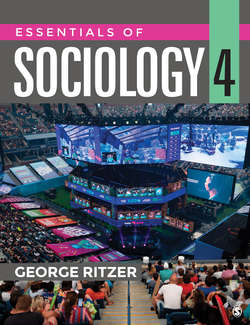Читать книгу Essentials of Sociology - George Ritzer - Страница 58
На сайте Литреса книга снята с продажи.
Queer Theory
ОглавлениеThe term queer was originally used as a negative term for gay men. Contemporary gay men, lesbians, bisexuals, and transgender and intersexed people have reclaimed the label queer, but now with a positive connotation. Queer theory is based on the argument that there are no fixed and stable identities that determine who we are (McCann 2016; Plummer 2019). The theory also unsettles identities that have long been thought to be fixed, stable, or natural. Among others, it unsettles queers as a noun, as well as gender identities in general (Butler 1990). Some queer theorists use the term genderqueer to refer to gender identities that are not exclusively male or female. Others believe that it is possible to be pangender, or identify as all genders. New pronouns such as xe and ze have been created as alternatives to he and she (Scelfo 2015). While queer theory does not focus exclusively on homosexuality, it does examine the dynamics of the relationship between heterosexuals and gay males and lesbians. It is especially concerned with the historic, systematic exercise of power by heterosexuals over gay males and lesbians. For example, gay males and lesbians have often, at least in the past, governed their own behavior in public, such as by foregoing displays of affection, to avoid making heterosexuals uncomfortable.
